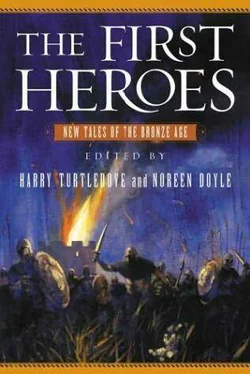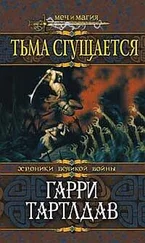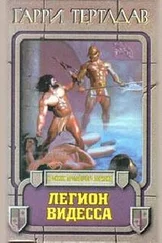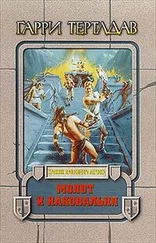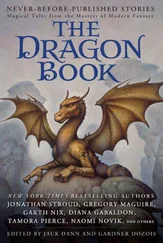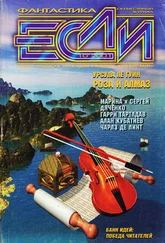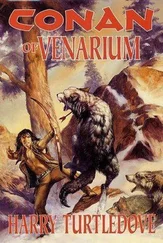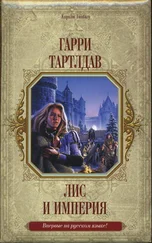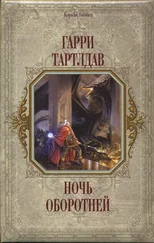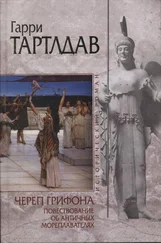Гарри Тертлдав - The First Heroes
Здесь есть возможность читать онлайн «Гарри Тертлдав - The First Heroes» весь текст электронной книги совершенно бесплатно (целиком полную версию без сокращений). В некоторых случаях можно слушать аудио, скачать через торрент в формате fb2 и присутствует краткое содержание. Жанр: Фантастика и фэнтези, на английском языке. Описание произведения, (предисловие) а так же отзывы посетителей доступны на портале библиотеки ЛибКат.
- Название:The First Heroes
- Автор:
- Жанр:
- Год:неизвестен
- ISBN:нет данных
- Рейтинг книги:3 / 5. Голосов: 1
-
Избранное:Добавить в избранное
- Отзывы:
-
Ваша оценка:
- 60
- 1
- 2
- 3
- 4
- 5
The First Heroes: краткое содержание, описание и аннотация
Предлагаем к чтению аннотацию, описание, краткое содержание или предисловие (зависит от того, что написал сам автор книги «The First Heroes»). Если вы не нашли необходимую информацию о книге — напишите в комментариях, мы постараемся отыскать её.
The First Heroes — читать онлайн бесплатно полную книгу (весь текст) целиком
Ниже представлен текст книги, разбитый по страницам. Система сохранения места последней прочитанной страницы, позволяет с удобством читать онлайн бесплатно книгу «The First Heroes», без необходимости каждый раз заново искать на чём Вы остановились. Поставьте закладку, и сможете в любой момент перейти на страницу, на которой закончили чтение.
Интервал:
Закладка:
Orqo dropped his half-eaten maize cake and looked sharply at the intruder. His mother, Qori Chullpa, who leaned against her son's back as she ate, stiffened but said nothing. Orqo glanced from the panting messenger to his father, and finally to Waman Waraka, the Chanka envoy who shared their morning meal. The envoy slowly set his plate on the blanket that was spread over the ground. The evening before, he and Wiraqocha had concluded a peace treaty between the Inka people and the Chankas, providing, of course, for a great deal of tribute to go to the Chankas. But, Orqo thought, if Kusi had accomplished the unthinkable, and successfully driven the Chankas from Qosqo—
A contingent of guards dashed in, grabbed for the messenger, and shrugged in apology, but Wiraqocha stilled them with a gesture. The man bowed again, but his eyes were still wide with the enormity of his news. "The Chankas are defeated," he gasped. "A great victory. Qosqo is saved. Even the stones—"
He stopped and looked at Waman Waraka. The Chanka man's face had paled, but he stood up quietly. "I think this message is not for my ears. I will return to my apartments." His mantle flapped as he left the courtyard.
Orqo unfolded his legs and rose slowly. "The stones what? Go on."
Wiraqocha touched Orqo's foot and whispered to him to sit down, but Orqo straightened and folded his arms. The messenger threw himself to the ground. "The stones themselves. The pururawha-huna. Kusi commanded them. They became warriors, fierce warriors, men and women, and they fell upon the Chankas like wild animals. I saw them, lords."
A dusty silence settled. Orqo felt the guards staring at him. He leveled his gaze at the nearest one until the man looked away.
"So Kusi marches from Qosqo?" Wiraqocha's voice was quiet, dangerously quiet.
"Yes, my lord."
"How far is he from here?"
"Half a day's march from Hakihawana, lord."
"Then we must prepare for his arrival." Wiraqocha held out a hand to Qori Chullpa, who helped him to his feet. He moved stiffly, but his back remained straight and proud, Orqo noted. When Kusi arrived, Wiraqocha would remind him who was Inka, still. And who was to become Inka.
"How fares Mama Runtu?" Qori Chullpa asked. "I know she stayed in Qosqo, at her son's side." Orqo looked at her. Why would she ask about Wiraqocha's official wife?
"The Qoya is well, and still at her home in Qosqo."
"Well, it is good news, is it not? Qosqo remains in our hands, and the Qoya is unharmed." Qori Chullpa's smile rebuked Wiraqocha and Orqo for not pretending, at least, to be glad for the victory. Orqo flushed. His mother poured a cup of aqha and handed it to the messenger, who gulped the fermented maize drink greedily. Then she gathered up the breakfast things. "I will see to the preparations for the feast," she said, and she disappeared into the shadows.
Orqo waited for his father to say something, but Wiraqocha just stared into the sky over the fortress walls. The guards shifted nervously. Finally the Inka gave them his attention. "You may go," he said. "Find this man a room where he may rest, and give him food. Then bring him to me again. I wish to question him further."
"Yes, lord." "And send fresh messengers to watch Kusi's approach. They must watch secretly. I want to know everything."
"Yes, lord."
Wiraqocha dismissed them with a nod, and the guards and messenger departed. For the first time since the news had arrived, Wiraqocha looked at Orqo. His eyes were opaque, his expression betrayed nothing. Orqo clenched his fists. This is not what you promised! he wanted to shout to his father. The Chankas are fierce, you said. Let Kusi stay and fight them if he insists, you said—the Chankas will kill him for us. We will treat for peace. Then when our neighbors have their fill of Chanka cruelty, they will come to us for aid, and you, Orqo, you will lead them to victory.
Then, Orqo remembered, his mother—listening, as always—had whispered, This is a dangerous plan, lord. I fostered Kusi and taught him. I know him better than any woman, better even than his own mother. He is—different.
But Wiraqocha had remained stubborn, and the three of them had fled Qosqo for Hakihawana, where they could treat for peace in safety. Yes, safety, thought Orqo, but at the cost of what later danger?
Orqo could no longer swallow his bitterness. "We should have listened to my mother," he said. "We should have stayed."
Wiraqocha shook his head. "The Chankas threatened to destroy Qosqo. You know their numbers, and their skill in fighting—to challenge them without allies would have been foolishness for an experienced general, let alone a boy." He crossed his arms. "I will believe this victory when I see the Chankas dead at my feet, and touch the mummy of Osqo Willka with my own hand."
Orqo wished his father to be right. But he remembered the messenger's urgent haste, and he was afraid. "If Kusi has won, Father," he said slowly, "the people of Qosqo will never accept me as Inka after you, no matter what you say. Many of them already prefer Kusi."
"If Kusi has won," Wiraqocha said, "we will find other ways to deal with him."
Yes, thought Orqo, swimming slowly now. Other ways to deal with Kusi! Which did his father mean? The botched ambush? The hasty and disorganized campaign that had led Orqo to defeat above the river at Yukay?
A cold ripple slopped over his face. Ambush, he thought. Again he scanned the rocky riverbanks, and the steep slopes beyond. Still he saw no one. His mind raced ahead, trying to follow the sacred river, to remember anything about its course or the terrain along its banks— rapids, bridges, fords, shrines. But he had not explored it, not as Kusi had. Their father had let Kusi come and go as he pleased, but kept him, Orqo, the future Inka, all but tethered, training him in arms but refusing to let him go to war, teaching him geography but trapping him at home, schooling him in languages but sending other envoys to their allies for fear of ambush or treason.
I will not lose you as Inka Yawar Wakaq lost his sons, Wiraqocha would say when Orqo protested. Six young men, murdered or killed in battle. Any one of them—
Would have made a fine Inka, Orqo would finish. But had they lived, he would add, the council of chiefs would not have elected you Inka, Father, and I would not be dying of boredom! The first time he said that, his father had struck him. The second time, Wiraqocha only said mildly, When you are Inka, you will understand.
But it was Wiraqocha who had not understood, Orqo thought. He had not seen how Orqo's confinement isolated him from the people he was to rule and made them distrust him. Or how Kusi, happy little Kusi, used his freedom to run about the city befriending every artisan and merchant, warrior and beggar, farmer and priest, winning the hearts of all, high and low.
Again Orqo's feet scraped against rocks, but this time he kicked himself toward a deeper channel. The current dragged his mace toward the bottom, and he held its shaft tightly.
No, Wiraqocha hadn't understood. He had only said, Be kind to your brother; befriend him now and you may not have to kill him later. So Orqo had allowed Kusi to follow him like a skinny little dog, devoted and cheerful. Annoyingly cheerful.
And then one day they had argued about their mothers.
That was where the trouble between them had begun. With their mothers—Qori Chullpa stepped into the courtyard where Orqo and Kusi crouched on the dirt rolling dice. A gameboard dotted with colored beans sat between the two boys.
"Come in soon, Orqo," she called. "Your father wishes to see you before the evening meal." Her shiny black hair spilled over her lliklla, which was fastened in front with a long golden pin. Both her outer mantle and the dress under it hung in soft, finely decorated folds. Qori Chullpa had woven them herself; Orqo had watched her. He felt a surge of pride. Her cloth was worthy of the gods.
Читать дальшеИнтервал:
Закладка:
Похожие книги на «The First Heroes»
Представляем Вашему вниманию похожие книги на «The First Heroes» списком для выбора. Мы отобрали схожую по названию и смыслу литературу в надежде предоставить читателям больше вариантов отыскать новые, интересные, ещё непрочитанные произведения.
Обсуждение, отзывы о книге «The First Heroes» и просто собственные мнения читателей. Оставьте ваши комментарии, напишите, что Вы думаете о произведении, его смысле или главных героях. Укажите что конкретно понравилось, а что нет, и почему Вы так считаете.
